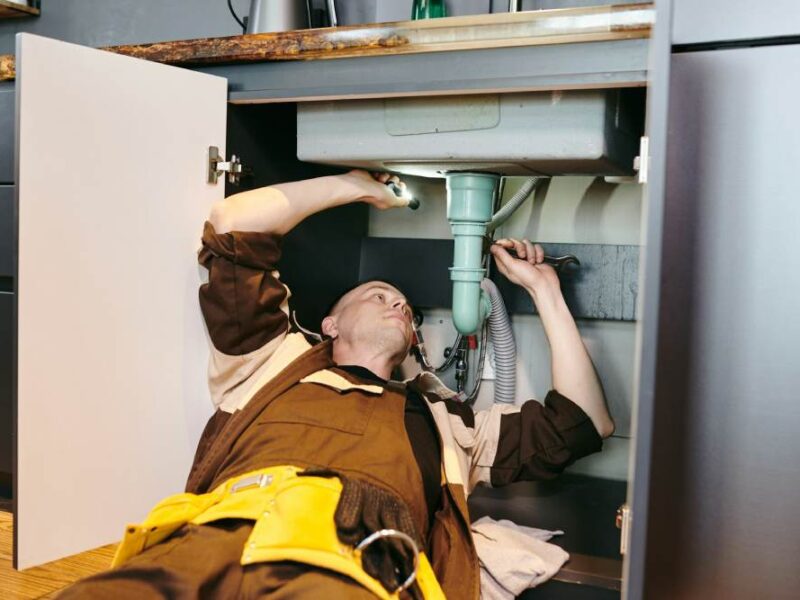Many people who require assistance due to disability rely heavily on service dogs in their daily lives. There are many various types of service dogs, and each one helps its owner live a more independent life by carrying out a specific set of responsibilities. We’ll look at several service dogs breeds and how they aid the less fortunate in this blog post. These extraordinary animals, which range from guiding dogs for the blind to hearing dogs for the deaf, significantly enhance the quality of life for their owners.
So read on if you’re unsure of what sort of assistance dog will be best for you or someone you know. There are so many different kinds of assistance dogs available that you might be surprised.
Mobility Assistance Dogs
These canines have received specialized training to assist those who have trouble standing or walking. They may help their owner maintain balance and support while also picking up any lost objects. Additionally, some of them can turn on and off light switches and open and lock doors. This breed of dog’s primary goal is to support its owner in maintaining as much independence as possible.
Additionally, they can be taught to assist with particular chores like pushing a wheelchair or getting dressed. Furthermore, the service dog training guide is the best way to learn more about these amazing animals.
Hearing Assistance Dogs
People who are hard of hearing or deaf employ these pets. They are taught to bark when their owner is being approached from behind and to notify them to certain alarms or ringing phones. Additionally, hearing aid dogs may be trained to react to other noises that their owner would need to be aware of, such as a smoke alarm. Having a hearing assistance dog dramatically raises the quality of life for many deaf or hard of hearing persons. Additionally, it is said that these dogs can aid in preventing social isolation and depression.
Allergy Alert Dogs
An allergy alert dog can literally save the lives of those who suffer from severe allergies. These specialized canines are taught to recognize an allergic response in their owner and then summon assistance. In order for their owner to always have emergency medication on hand in case of a response, allergy alert dogs can be trained to carry it on their bodies in a specific pouch. Additionally, it’s said that by warning their owners when items like pollen or nuts are nearby, these dogs may assist their owners to completely avoid dangerous allergies.
Autism Assistance Dogs
Autism support canines are specially trained to provide autistic kids a sense of security and tranquility. These canines can assist in removing social boundaries and offering crucial emotional support. According to rumors, autistic service dogs can help with behavioral problems by establishing a sense of order and regularity.
Additionally, these canines may be taught to carry out particular jobs like collecting objects or offering deep pressure treatment during anxious or stressful moments. Additionally, the dog may be taught to locate and return a lost autistic youngster.
Seizure Response Dogs
Seizure Response Dogs are taught to assist people with seizure problems. The majority of the time, these dogs can recognize an impending seizure and alert their owner before it occurs. Additionally, seizure response dogs can be trained to call for assistance, gather medications, or offer physical support both during and after a seizure. The major objective of this breed of dog is to protect the seizure condition sufferer during a seizure.
Diabetic Alert Dogs
Specially trained diabetic alert dogs can see changes in their owner’s blood sugar levels. Keeping monitoring of blood sugar is a full-time job for those with diabetes. A diabetes alert dog can assist a person take the required actions to get their numbers back on track by early detecting low or high blood sugar levels. A diabetic alert dog’s friendship and unconditional affection are salso thought to contribute to the improvement of the general mental and emotional health of those who have diabetes.
Social Anxiety Dogs
The support of a service dog may be quite helpful for people who struggle with social anxiety. These canines have been taught to offer comfort and company in circumstances that make people feel nervous. By offering their owner both physical and mental comfort, they can aid in reducing their concerns. Service dogs for social anxiety are frequently seen going to work, school, or other public locations with their owners. Many individuals discover that having their dog by their side makes them feel more at ease and secure in social settings.
Dementia Assistance Dogs
Assistance canines for dementia sufferers are trained specifically to help them live independently. They may help with domestic duties, remind their owner to take their medication, or keep them safe while they are out and about. These dogs are excellent companions for people with dementia since they are often quiet and friendly. Additionally, having a dog may frequently comfort and calm persons with dementia.
Therapy Dogs
In many contexts, therapy dogs are utilized to offer companionship and emotional support ,you can even opt registering your pet as an emotional support animal. They may frequently be seen at hospitals, elderly homes, schools, and regions that are in need of disaster help. People of all ages can experience less fear, loneliness, and anxiety thanks to therapy dogs.
These kind people give unconditional love and acceptancregistering your pet as an emotional support animale, which is quite beneficial for individuals going through challenging circumstances in life. Additionally, compared to reading to people, kids frequently feel more at ease and confident while reading aloud to therapy dogs.
Psychiatric Service Dogs
The last item on our list is a service dog for mental health. These kinds of service animals are used to support people with mental illnesses like depression, schizophrenia, and bipolar disorder. Psychiatric service dogs can be taught to do a wide range of tasks, including:
- Interrupting dangerous or recurrent habits.
- Giving deep pressure treatment to people experiencing anxiety or panic episodes.
- Getting meds back.
- Preventing the owner from leaving risky situations.
- Protecting the owner when they are through a dissociative episode.
Psychiatric service dogs are different from emotional support animals because they have been specifically trained to perform certain tasks that their owners struggle with on a daily basis. Many people with mental illness feel much safer and more confident when they have their furry friend by their side at all times.
Conclusion
In conclusion, the types of service dogs outlined above offer those in need crucial support. They assist their owners with a wide range of duties, from simple ones like carrying and collecting objects to more difficult ones like applying deep pressure to relieve anxiety attacks. These fuzzy pals are real heroes that make everyone around them happier!



